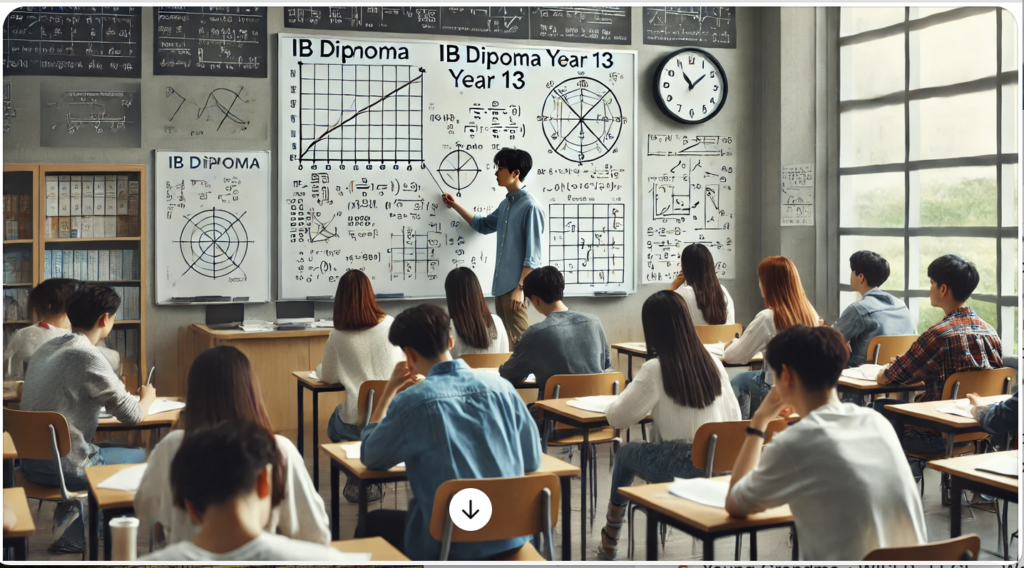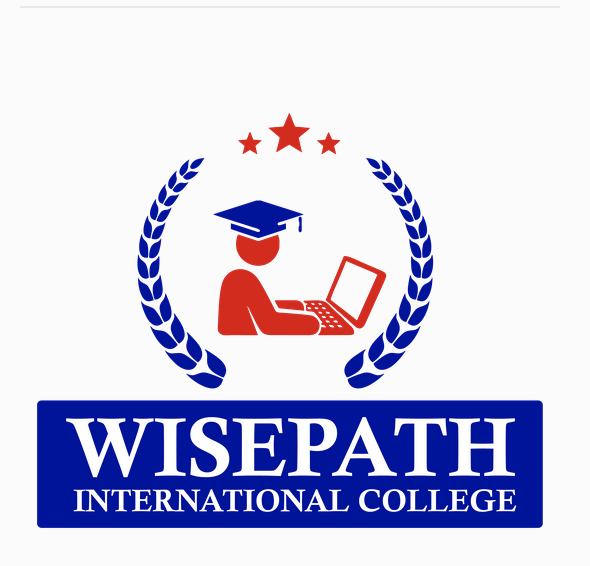
The IB PROGRAM & CURRICULUM



What is the IB Program?
The IB (International Baccalaureate) program is an internationally recognized educational framework aimed at students aged 3 to 19. It offers a comprehensive and rigorous curriculum designed to develop students intellectually, personally, emotionally, and socially. The program emphasizes critical thinking, intercultural understanding, and exposure to a broad range of subjects and disciplines.

There are four main programs within the IB framework:
Primary Years Programme (PYP): This program is designed for students aged 3 to 12. It focuses on the development of the whole child, nurturing their academic, social, and emotional growth. The PYP encourages inquiry-based learning, where students explore topics through questioning, investigation, and reflection.
Middle Years Programme (MYP): Aimed at students aged 11 to 16, the MYP provides a holistic approach to education, emphasizing intellectual challenge, personal development, and global awareness. Students study a range of subjects, including language and literature, sciences, mathematics, arts, humanities, and physical education. The MYP also incorporates a community service component and encourages students to engage in interdisciplinary learning.
Diploma Programme (DP): The DP is a two-year program for students aged 16 to 19, typically undertaken in the final years of high school. It offers a broad and balanced curriculum, including six subject groups: studies in language and literature, language acquisition, individuals and societies, sciences, mathematics, and the arts. In addition to academic study, DP students must complete the Theory of Knowledge (TOK) course, an Extended Essay (EE), and engage in Creativity, Activity, Service (CAS) activities. The DP culminates in external examinations and the award of an IB diploma, recognized by universities worldwide.
Career-related Programme (CP): Designed for students aged 16 to 19, the CP integrates academic study with career-related learning and practical experience. Students choose a career-related pathway, which includes at least two IB Diploma Programme courses, a reflective project, and career-related studies. The CP aims to prepare students for further education, apprenticeships, or employment in their chosen field.
Overall, the IB program promotes international-mindedness, academic excellence, and holistic development, preparing students to become active, compassionate, and lifelong learners in a global society.
How to select Subject-combinations for the IB Diploma Qualification?
Selecting subject combinations for the IB Diploma Programme involves careful consideration of several factors, including academic strengths and interests, career aspirations, university requirements, and the IB curriculum’s requirements. Here’s a step-by-step guide to help with the selection process:
Understand the IB Diploma Programme Requirements: Familiarize yourself with the core components of the IB Diploma Programme, which include three core elements: Theory of Knowledge (TOK), Extended Essay (EE), and Creativity, Activity, Service (CAS). These elements are compulsory for all students pursuing the diploma.
Review Subject Group Options: The IB Diploma Programme consists of six subject groups. These are:
- Studies in Language and Literature
- Language Acquisition
- Individuals and Societies
- Sciences
- Mathematics
- The Arts
Identify Personal Interests and Strengths: Reflect on your academic strengths, interests, and future career goals. Consider subjects that you enjoy studying and excel in, as well as those relevant to your intended university major or career path.
Check University Requirements: If you have specific universities or courses in mind for higher education, research their entry requirements. Some universities may have subject prerequisites or preferences for certain IB subjects. Ensure that your chosen subject combination aligns with these requirements.
Balance the Subject Combination: Aim for a well-rounded subject combination that includes a mix of disciplines from different subject groups. Balance humanities, sciences, languages, and arts subjects to demonstrate breadth of knowledge and skills.
Consider Higher Level (HL) and Standard Level (SL) Subjects: Within each subject group, you’ll need to choose subjects at either Higher Level (HL) or Standard Level (SL). HL subjects typically require more in-depth study and are recommended for subjects you’re passionate about or intend to pursue at university. SL subjects provide a broad overview of the subject and are suitable for areas of interest that may not be your primary focus.
Consult with Teachers and Advisors: Seek advice from your school’s IB coordinator, teachers, or academic advisors. They can provide valuable insights into subject selection based on your academic performance, interests, and future goals.
Consider the Extended Essay (EE) Topic: Keep in mind that your choice of subjects may influence your Extended Essay topic. Choose subjects that align with your interests and expertise, as you’ll be conducting independent research and writing a 4,000-word essay on a topic related to one of your chosen subjects.
Be Flexible: Be open to adjusting your subject combination based on feedback from teachers, advice from mentors, or changes in your academic interests and goals.
By carefully considering these factors and seeking guidance when needed, you can select a subject combination that best suits your academic strengths, interests, and future aspirations within the IB Diploma Programme
IB Diploma Subject Groups:
Language and Literature (Group 1): This subject focuses on developing language proficiency, critical reading, and analytical skills. Students explore a variety of literary texts, including fiction, non-fiction, poetry, and drama, while also honing their ability to communicate effectively through writing and discussion.
Language Acquisition (Group 2): In this subject, students deepen their understanding of a second language, either as a beginner or as a continuation of previous study. Through immersive language practice, students enhance their communication skills in listening, speaking, reading, and writing, with an emphasis on cultural awareness and intercultural communication.
Individuals and Societies (Group 3): Individuals and Societies encompass a range of subjects such as History, Geography, Economics, and Psychology. Students investigate human behavior, societal issues, and historical events through critical analysis, research, and interpretation, gaining insights into the complexities of the world around them.
Sciences (Group 4): The Sciences include Biology, Chemistry, Physics, and Environmental Systems and Societies. Students engage in hands-on experiments, scientific inquiry, and data analysis to explore fundamental principles and concepts in each discipline, fostering curiosity and understanding of natural phenomena.
Mathematics (Group 5): Mathematics is offered at different levels to accommodate students’ varying abilities and interests. Through problem-solving, reasoning, and mathematical modeling, students develop proficiency in mathematical concepts and techniques, preparing them for further studies in mathematics and related fields.
The Arts (Group 6): The Arts encompass subjects such as Visual Arts, Music, Theatre, and Film. Students express their creativity, imagination, and cultural perspectives through artistic exploration and practice, developing technical skills and critical appreciation of various art forms.
Extended Essay (EE): The Extended Essay is a research project undertaken by students on a topic of their choice within one of the IB subject areas. Through independent research, critical analysis, and synthesis of information, students demonstrate their academic skills and intellectual curiosity, culminating in a substantial written essay.
Theory of Knowledge (TOK): Theory of Knowledge is a core component of the IB curriculum that encourages students to reflect on the nature of knowledge, how it is acquired, and its implications in different areas of knowledge. Through critical inquiry and discussion, students explore concepts such as truth, belief, perception, and ethics, fostering interdisciplinary thinking and intellectual curiosity.
IB Subjects:
Language and Literature (Group 1):
- Language A: Literature
- Language A: Language and Literature
Language Acquisition (Group 2):
- Language B: Acquisition (Various languages such as French, Spanish, German, etc.)
- Language ab initio: Acquisition (Beginner level courses)
Individuals and Societies (Group 3):
- History
- Geography
- Economics
- Psychology
- Philosophy
- Social and Cultural Anthropology
- Business Management
- Global Politics
- Environmental Systems and Societies
Sciences (Group 4):
- Biology
- Chemistry
- Physics
- Environmental Systems and Societies
- Computer Science
- Design Technology
- Sports, Exercise and Health Science
Mathematics (Group 5):
- Mathematics: Analysis and Approaches (Higher Level and Standard Level)
- Mathematics: Applications and Interpretation (Higher Level and Standard Level
- Visual Arts
- Music
- Theatre
- Film
- Dance
Extended Essay (EE):
- Students choose a topic of personal interest within one of the IB subject areas and conduct independent research, culminating in a 4000-word essay.
Theory of Knowledge (TOK): This course is interdisciplinary and explores the nature of knowledge across different subject areas. It encourages students to critically examine the ways in which knowledge is constructed, evaluated, and applied in various contexts.
- Internal Assessment Project: IA
Internal Assessment (IA) in the IB program is a form of assessment conducted by teachers within the school. It consists of various components, such as essays, laboratory reports, projects, or artistic performances, depending on the subject. IA allows students to demonstrate their understanding, application, and analysis of course material in a more personalized and practical manner. It also encourages critical thinking, independent research, and creativity. IA plays a significant role in the IB program as it contributes to the overall assessment of students’ performance, accounting for a percentage of their final grade in each subject. For example in mathematics IA contributes 20% to the overall grade for Mathematics.
We give specialized attention and Workshop for the EE and IA Projects to all Students who seek our help from us.



